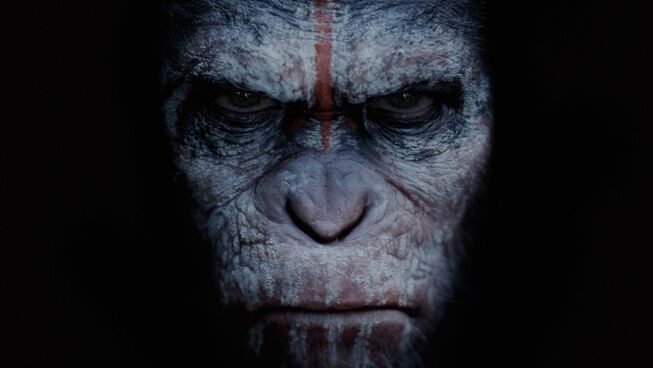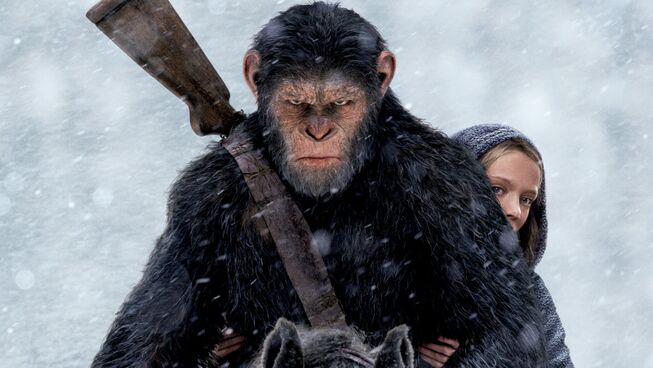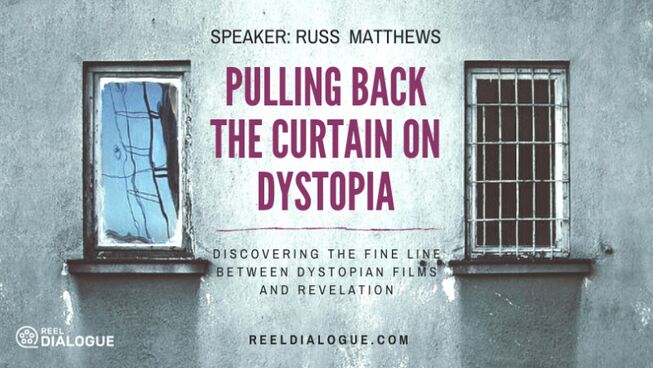
4 out of 5 stars
The Planet of the Apes films conjure images of scientific glory, the evils of humanity and environmentalist underpinnings. Dawn of the Planet of the Apes did not seem to offer any original themes, but even with apes flying through the trees, this film delivers a message that has both feet on the ground.
In the dystopian, ALLZ-113 plagued world of Dawn of the Planet of the Apes, ten years have passed since leaving the story of Rise of the Planet of the Apes. Caesar (Andy Serkis) and his band of apes are thriving in the forests surrounding San Francisco. Humans are presumed to have died off through the catastrophic simian plague and war. Caesar has developed into an effective leader of this former band of lab animals. The apes have developed a community with family units, education and perceived unity for survival. The ape utopia is shattered through a violent confrontation with the human element in the area and the apes are made aware of the human's survival. This collision of worlds shakes the foundations of the leadership and lifestyle of both communities. The humans have been surviving in the dilapidated city, but need to find an energy source. They journey into the surrounding forests to seek out an hydroelectric dam and are confronted with the ape society. The leader of the surveying human group, Malcolm (Jason Clarke), hopes to provide for the human survivors of the plague and strives to build diplomatic relations with Caesar and the ape community.
The fragility of this peace accord comes under fire from internal struggles of both ape and human societies. Caesar and Malcolm strive to maintain the balance for the sake of a coexistence between man and ape. For the reality of a peace accord to succeed, there must be trust and this trust does exists between these two leaders. This dismantling of this trust occurs due to others within either side of the ensuing battle. The brilliance of Matt Reeves (Cloverfield, Let Me In) direction is there is no need to pick sides between the apes and the humans, but an understanding that good and bad exists within both groups. Skepticism and bitterness infect both communities and this is fuelled by the ape lieutenant, Kabo (Toby Kebbell) and the mayoral type leader of the humans, Dryfus (Gary Oldman). Through the tangled web of mistrust and thirst for control, the film devolves into a battle for the city, but the ultimate battle becomes internal. The struggle within each group leads to stand offs between the the leaders within each group and leaves the film with a juxtaposition of separation or coexistence.
The challenge of this film is remembering that it is science fiction. The writers effectively spin a tale that is believable and convinces the audience it is plausible. As the sequel to Rise of the Planet of the Apes, this story had the potential to paint a picture of the evils of humanity, the championing of science and preaching another environmentalist message, which might keep some audiences away. Yet, this is not the message of Reeves' film and it would be unfortunate for people to miss out on seeing this film. These themes can potentially be read into the background, but they do not drive the storyline. Another potential distraction could be the amazing CGI effects. They will and should be celebrated by audiences, but the effects are merely a support for a well written story. Unlike many recent films that rely on special effects to distract from weak story lines, the incredible effects merely support this film and complement the writing. The storyline has a deeper message and does not paint mankind as the villain, but the darkness of the hearts of the many central characters. There is an external battle between man and ape, but ultimately the potential evolutionary and environmental underpinnings are defused by a deeper, internal message of forgiveness and family. The strength of the film is grounded in a desire for trust and loyalty within the narrative of the script. There are a few plot holes that cause some head scratching (or for the apes, scratching under the arms), but not enough to derail the film.
If anything has evolved in film making over the past few years is the category for the CGI actor. Andy Serkis (Lord of the Rings trilogy) has set the benchmark for acting through special effects and deserves some recognition for his contribution to this film. He not only supplies the voice, but adds his physicality and acting abilities to Caesar. He and the other actors that portray the apes are pioneers, reminiscent of Lon Chaney (Original Phantom of the Opera), showing that special effects and make up can merely support great acting performances. Besides the well written script, the acting performances deliver one of the strongest contribution to the film. The band of apes and the development of the trust between the lead actors was the catalyst for success of this film. The central characters deliver levity and warmth through the family moments and allow the audience time to care for them, regardless of their species. The fragility of forgiveness within a family and a community and the importance of trust shines throughout the message of this cinematic experience. Not that the film leaves an unrealistic happily ever after feeling, on the contrary, it does communicate the reality of the brokenness of this world and a need for hope in something or someone.
The film is set in a fictitious world of the battle between apes and mankind. War, brief language, battle scenes and suspenseful situations would make this suited for an older audience. Just because it has gorillas and apes in it does not make it a film for young children. It would be a great film for people to attend and come out and discuss the bigger questions of life.
Reel Dialogue: What are some of the bigger questions to consider from this film?
- Where can we find true forgiveness? (Acts 2:38 & 13:38, Matthew 18:21-22)
- What is the priority of family in your life? (Exodus 20:12, Colossians 3:18-21)
- Where can we find hope in this broken world? (Acts 24:14-16, Romans 8:24)








